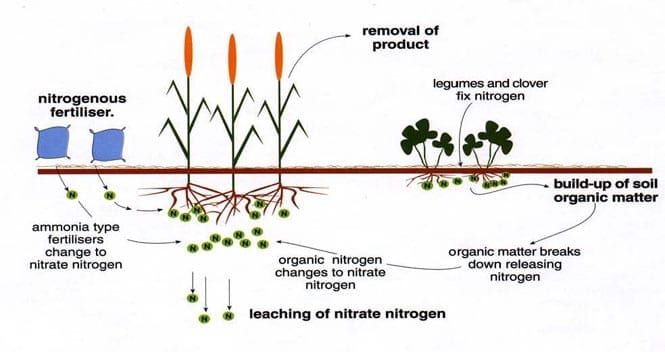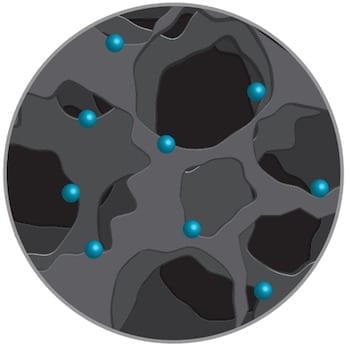
Don’t look now, but the pronoun “I” is becoming obsolete. Recent microbiological research has shown that thinking of plants and animals, including humans, as autonomous individuals is a serious over-simplification.
A series of groundbreaking studies have revealed that what we have always thought of as individuals are actually “biomolecular networks” that consist of visible hosts plus millions of invisible microbes that have a significant effect on how the host develops, the diseases it catches, how it behaves and possibly even its social interactions.
It’s a case of the whole being greater than the sum of its parts“It’s a case of the whole being greater than the sum of its parts,” said Seth Bordenstein, associate professor of biological sciences at Vanderbilt University, who has contributed to the body of scientific knowledge that is pointing to the conclusion that symbiotic microbes play a fundamental role in virtually all aspects of plant and animal biology, including the origin of new species.
In this case, the parts are the host and its genome plus the thousands of different species of bacteria living in or on the host, along with all their genomes, collectively known as the microbiome.
(The host is something like the tip of the iceberg while the bacteria are like the part of the iceberg that is underwater: Nine out of every 10 cells in plant and animal bodies are bacterial. But bacterial cells are so much smaller than host cells that they have generally gone unnoticed.)
Microbiologists have coined new terms for these collective entities – holobiont – and for their genomes – hologenome. “These terms are needed to define the assemblage of organisms that makes up the so-called individual,” said Bordenstein.
In the article Host Biology in Light of the Microbiome: Ten Principles of Holobionts and Hologenomes published online Aug. 18 in the open access journal PLOS Biology, Bordenstein and his colleague Kevin Theis from the University of Michigan take the general concepts involved in this new paradigm and break them down into underlying principles that apply to the entire field of biology.
They make specific and refutable predictions based on these principles and call for other biologists to test them theoretically and experimentally.
“One of the basic expectations from this conceptual framework is that animal and plant experiments that do not account for what is happening at the microbiological level will be incomplete and, in some cases, will be misleading as well,” said Bordenstein.
The first principle they advance is that holobionts and hologenomes are fundamental units of biological organization.
Read more: The pronoun ‘I’ is becoming obsolete
The Latest on: Holobiont
[google_news title=”” keyword=”holobiont” num_posts=”10″ blurb_length=”0″ show_thumb=”left”]
via Google News
The Latest on: Holobiont
- Coral reef microbes point to new way to assess ecosystem healthon April 15, 2024 at 5:00 pm
More information: Decline of a distinct coral reef holobiont community under ocean acidification, Microbiome (2024). DOI: 10.1186/s40168-023-01683-y ...
- Coral reef microbes point to new way to assess ecosystem healthon April 15, 2024 at 5:00 pm
referred to as a decline in 'holobiont community distinctness'. The findings suggest that the way microbial communities hosted by macro-organisms change could be used as early indicator of ...
- These Solar-Powered Carnivorous Flatworms Divide and Conqueron March 25, 2024 at 5:00 pm
Without its algae, the acoel would eventually die, even if it had plenty of prey to eat. Scientists call a creature like this a holobiont, a single being made up of two or more completely different ...
- Aquatic plants turn pollutants into green productson December 13, 2023 at 6:06 am
Researchers at the Duckweed Holobiont Resource & Research Center (DHbRC) of the Faculty of Science, Kasetsart University in Bangkok, Thailand, now plan to harness the plant for green economic ...
- Organisms, Agency, and Evolutionon March 15, 2023 at 9:20 am
Chiu, Lynn and Eberl, Gérard 2016. Microorganisms as scaffolds of host individuality: an eco-immunity account of the holobiont. Biology & Philosophy, Vol. 31, Issue ...
- John Wertzon March 2, 2022 at 2:42 pm
Professor John Wertz (and four other researchers) has been awarded a National Science Foundatuion five year grant totaling $1,997,047 for identifying how the ecological and evolutionary interactions ...
- Jacob A. Russell, PhDon January 6, 2022 at 12:46 pm
“Dimensions: Identifying how the ecological and evolutionary interactions between host and symbiont shape holobiont biodiversity.” 2015-2020. (PI, along with: PI Corrie Moreau, Assistant Curator of ...
- Development of the Duckweed Holobiont Resource Values towards Thailand BCG Economyon November 11, 2020 at 10:01 am
Establish a holobiont resource research center to study combination of duckweed and coexisting microorganisms Contribute to the construction of a sustainable society by utilizing plants in the ...
- The hologenome theory disregards the coral holobionton May 5, 2017 at 9:28 am
Their microbial-centric view is at odds with the now widely embraced coral holobiont model 15. We feel that the lack of consideration of the wide and diverse scientific literature on coral ...
- Dimensions: Identifying how the Ecological and Evolutionary Interactions between Host and Symbiont shape Holobiont Biodiversityon March 31, 2016 at 7:27 am
Professor John Wertz (and four other researchers) has been awarded a National Science Foundatuion five year grant totaling $1,997,047 for identifying how the ecological and evolutionary interactions ...
via Bing News









